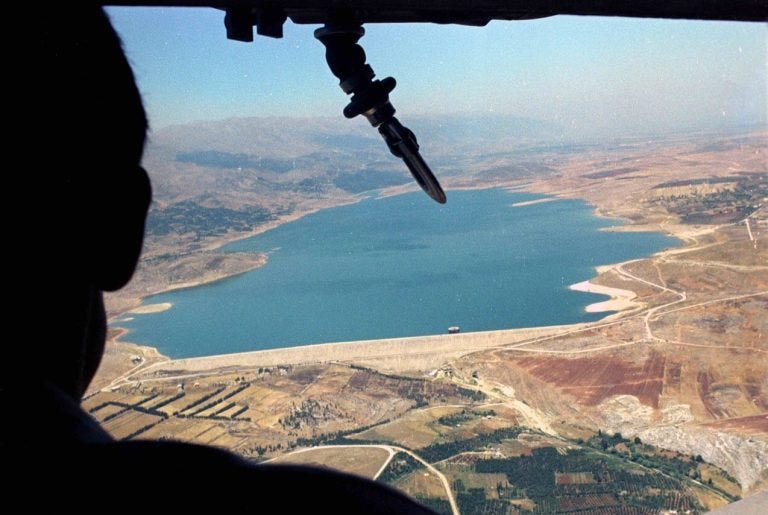The disadministrative state
With Mark Frazier, James Miller, Kim Lane Scheppele, Julia Sonnevend, Emmanuel Guerisoli, Dionéia Ferreira, Eduardo Staszowski, Renata Zampronio, Carina Filemyr, and Erick Moreno Superlano
What can come out of repression and chaos?
This week at Public Seminar, our conversation on regimes and resistance spans Budapest and Beijing, the Southern Amazonian Forests, Jerusalem and Tehran, New York City and the Darién Gap.
Erick Moreno Superlano dissects Trump’s attack on working-class Venezuelans. Emmanuel Guerisoli charts how Israel arrived at “Gazification” as a regional foreign policy. James Miller convenes a panel on bureaucracy and its discontents with Mark Frazier, Kim Lane Scheppele, and Julia Sonnevend. Eduardo Staszowski and Renata Zampronio interview Dionéia Ferreira about transdisciplinary activism in the Amazon. And Carina Filemyr reviews a new account of what it’s like to be incarcerated on Riker’s Island.
“Look,” Scheppele reminds us, “there are all sorts of ways to resist.”
The Administrative State, Its Democratic Deficits, and How to Fix Them in Comparative Historical Perspective
Mark Frazier, James Miller, Kim Lane Scheppele and Julia Sonnevend
Kim Lane Scheppele: Is democratic theory in an age of autocracy up to the challenges posed by autocrats like Orbán and Trump? This challenge to bureaucracy and to expertise requires us to justify why unelected bureaucrats should have such major responsibilities in the middle of a democracy. Why should important decisions about how we are to be governed be made by those whom we have not elected?
The Working-Class Venezuelans at the Center of Trump’s “Crisis”
Erick Moreno Superlano
Alex was trembling when he entered the café. He had agreed to participate in my research on Venezuelan immigration in New York and we had decided to discuss his story over coffee. But as he walked down the street to meet me, an ICE van had pulled over and parked alongside him. Even though his documents were in order, he felt a chill at the thought of being deported back to Venezuela. It took him a moment to calm down before he was able to order a coffee and begin sharing the story of his migration to the United States.
Cooking Noodles on Rikers Island
Carina Filemyr
Not only is Rikers Island geographically isolated—a landmass situated on the East River between the Bronx and Queens—but what happens there is kept out of the public’s sight. Journalists are given limited entry into day-to-day life on the island, which houses the city’s largest jail. Now, in City Time: On Being Sentenced to Rikers Island (NYU Press, 2025), authors David Campbell and Jarrod Shanahan—two political activists imprisoned at Rikers for “protesting activity”—offer something new: an account of their daily lives inside, situated within a sociological discussion of mental health, substance use, the racial disparities extant in the carceral system, and stereotypes about Rikers (and jail more generally).
The Vision of Hegemony Driving Israel’s Regional Policy
Emmanuel Guerisoli
Over a long twentieth century of regional tussles, Israel’s local foreign policy focus has shifted from preventing the emergence of a regional hegemon toward a campaign for outright domination. The strategy has shattered the Middle East’s fragile and imperfect status quo, the stability of which was closely connected to the question of diplomatic recognition of Israeli and Palestinian statehood. But a strategy of “Gazification” of the Middle East may ultimately be Israel’s undoing.
“The Amazon Is Not a Warehouse”
Dionéia Ferreira, Eduardo Staszowski and Renata Zampronio
Dionéia Ferreira: BR-319, like the Trans-Amazonian Highway, was built during the same period in the early 1970s, under Brazil’s military dictatorship. They are sister highways, part of a broader state project to integrate the Amazon into the national economy through infrastructure expansion. My city sits right at the intersection of the two. These highways were opened to serve economic interests, to facilitate the entry of agribusiness and mining into the region. They were tools of colonization, used to expand land grabs and territorial occupation for agribusiness.







